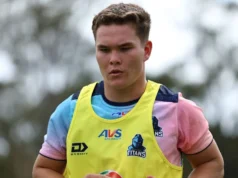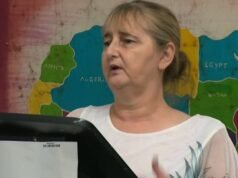আইনি চ্যালেঞ্জ এবং অভ্যন্তরীণ বিদ্রোহের হুমকির মধ্যে প্রধানমন্ত্রীর প্রতিশ্রুত মুখোশ আইন কার্যকর হবে না।
Under Victorian law, police already have the power to direct someone to remove a face covering if they are in a “declared area” – a geographic location gazetted for the purpose of applying greater search powers. If a protester refuses, police can direct them to leave. Failure to follow instructions is an offence. Under the proposed new laws, police would no longer have to declare an area to request mask removal, but would have to adhere to a reasonable suspicion clause. The government’s efforts to balance legal concerns with a promise to crack down on extreme behaviour at public protests will be greeted with caution by liberal and legal advocates but disappoint Jewish community organisations. It is also likely to generate a heated debate at the cabinet table on Tuesday. Opposition police spokesman David Southwick said the proposed changes were too little, too late and would disappoint those who had been waiting for the government to take stronger action. “It provides even more cover for people trying to break the law.” The Opposition has already promised that a Coalition government would ban face masks and restore the right to movement to assist police to deal with violent and disruptive protests. Opposition police spokesman David Southwick provided: Christopher Hopkins-Allen’s government would deliver on its separate promise. It bans the public display of symbols of proscribed terrorist groups including Hizbollah and Hamas and prohibits the use of glues, ropes, chains, locks and other attachment devices used by protesters to resist police. The bill contains provisions to limit protests outside synagogues, mosques and other places of worship, but stops short of an outright ban. There was a general feeling that a blanket ban would have unintended consequences, including for child sexual abuse survivors who had previously protested outside churches. When the government first promised the law changes, police minister Anthony Carbines said ski masks were for Mount Buller, not Melbourne streets. “You can’t hide behind a mask here in Victoria if you stand for something,” he said. After clashes with police at the 2024 Army Arms Expo, then-chief commissioner Shane Patton said protesters had intended to engage in violence. “They were standing there with ski masks and full-face balaclavas. There was no snow there,” he said. “The only reason they had masks on was to avoid (capsicum) spray if they came there with the intent to incite or assault.” The bill was drafted after extensive consultation with human rights advocates, Jewish, Muslim and other community groups. The Human Rights Law Centre has raised concerns about the legal validity of a face mask ban, arguing that it would criminalise people who wear masks for health or cultural reasons, to protect their privacy, or as a form of political communication or art. Sarah Schwartz, the centre’s legal director, said on Monday that the High Court had confirmed that laws limiting peaceful protest must be justifiable and proportionate. “A blanket ban on face coverings during protest is not only patently overreach, it is likely to infringe the implied constitutional freedom of political communication,” she said. “The proposed mask ban will disproportionately deter racialised communities, religious minorities and people with disabilities from participating in peaceful protest.” Schwartz, who is also executive officer of the Australian Jewish Advocacy Council, said that if the government was serious about addressing extreme behaviour, it shouldn’t do so at the expense of people’s right to peacefully protest. The centre also opposes banning the use of devices, the display of terrorist symbols and protesting outside places of worship. We’re bringing you the most important and interesting stories, analysis and insights of the day. Subscribe to the Morning Edition newsletter.
প্রকাশিত: 2025-11-10 14:56:00
উৎস: www.smh.com.au












